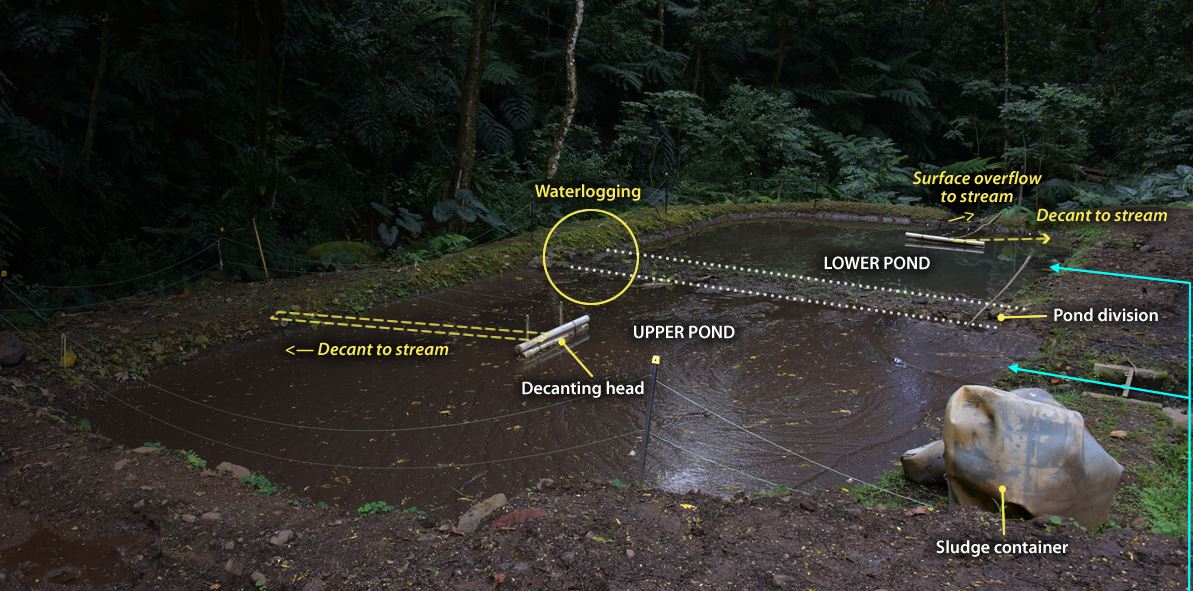Current discharge system ‘not sustainable’ – report
Friday 9 December 2022 | Written by Matthew Littlewood | Published in Environment, National

22120825: A diagram of the Turangi Sludge ponds, pictured in June 2022. Photo: Supplied/TVOM.
A report into the discharge of sludge into the Avana and Turangi streams says the current situation is “not sustainable”.
Environmental advocacy group Te Vai Ora Maori (TVOM) has already expressed concern about the fact the Rarotonga Environment Authority (REA) has approved a three-month permit extension for the Water Treatment Plan Onsite Discharge project at the 10 Te Mato Vai drinking-water treatment facilities.
TVOM made a presentation to the National Environment Service (NES) about the discharge of sludge into the Avana and Turangi streams.
TVOM chairperson Justine Flanagan said they had received a copy of To Tatou Vai (TTV) chief executive Apii Timoti's report in regards to TVOM's observations.
Cook Islands News has asked TTV for a copy of the report.
“The report confirmed the current situation is not sustainable,” Flanagan said.
“There is an urgent need to investigate alternative methods of treatment.”
The permit authorises the dosing of coagulant, the short-term containment of sludge in onsite ponds, and the release of chemically-treated water (supernatant) into streams.
“There are a lot of nature-based solutions which could address at least part of the issue,” Flanagan said.
“In 2021 TVOM presented a Concept Note on improving the function of the sludge ponds using a nature-based solution; specifically, the use of Vetiver grass to better manage the residuals.”
She said TVOM had approached water regulatory authority To Tatou Vai (TTV) about a meeting about the situation, and what changes could be made.

“The water treatment system is not adequately localized. It doesn’t take into account the specifics of a tropical environment and climate,” Flanagan said.
Ngatangiia MP Tukaka Ama said he had met with TVOM about the issues.
“It’s obviously a concern for them, but I feel I need to get more information from TTV before I do something about it,” Ama said.
“At the end of the day, we all want clean water, and we need to make sure the systems are right.”
On Thursday, NES director Halatoa Fua reiterated it was “working on the technical aspects of this project, hence the 3-months extension”.
He declined to comment further about TVOM’s concerns.
TVOM technical director Andy Kirkwood has previously said the operation of the system, combined with the recent drought meant the ability for biodiversity to move through the streams has been interrupted.
“That’s a real issue that hasn’t been properly canvassed,” he said.
“What happens in the intake affects the life of our streams. We really need official data, and monitoring, and hopefully NES will address that.”
“This is the responsibility of the NES and they are resourced to look at those things.”














































